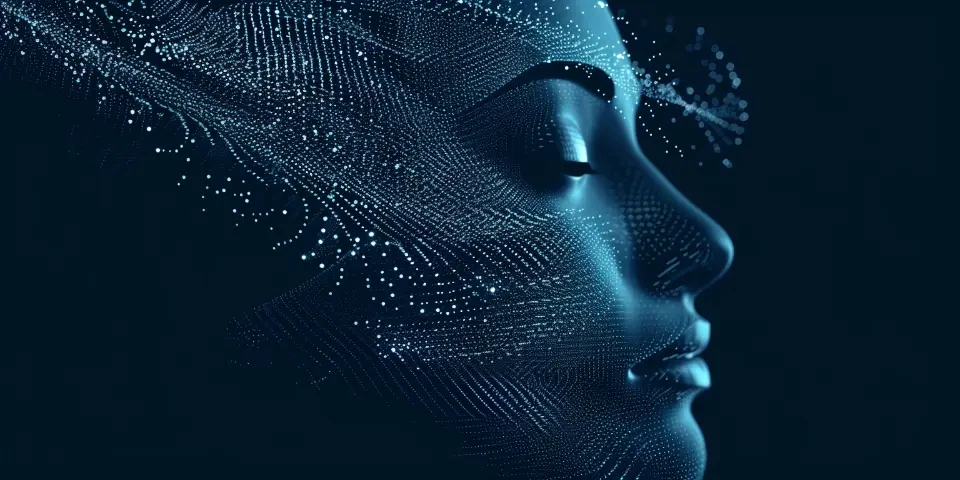Exploring the Universe through Words AI Poetry Inspired by Space and Beyond
The universe has been an endless source of fascination for humanity, sparking curiosity, inspiring countless works of art, and encouraging exploration. As we delve into the mysteries of the cosmos, we find new ways to express our wonder and awe through poetry. With advancements in Artificial Intelligence (AI), we can now create poetry that is not only inspired by space but also generated with the help of powerful algorithms. In this article, we will explore the world of AI poetry inspired by space and how it enhances our understanding and appreciation of the universe.
The Marriage of Language and Space
Space and poetry seem to be two separate realms, but they share a profound connection. Poetry captures the essence of emotions, thoughts, and experiences, while space presents us with a vast canvas of celestial bodies, cosmic phenomena, and the wonders of the unknown. Combining these two, AI poetry brings us a unique perspective on the universe.

AI Poetry as a Creative Tool
AI poetry, fueled by machine learning algorithms, has the potential to offer fresh insights into the universe. By analyzing vast amounts of astronomical data, AI algorithms can uncover patterns and correlations invisible to the human eye. These algorithms can then generate poetry that reflects the beauty and complexity of the cosmos, expanding our understanding beyond what was previously possible.
Challenges and Controversies
Despite the potential benefits, AI poetry also faces challenges and controversies. Critics argue that AI-generated poetry lacks the human touch and emotional depth found in traditional poetry. However, proponents believe that AI poetry offers a new way to appreciate the universe, highlighting the intersection of art and science.
The Ethical Implications of AI-generated Poetry
AI-generated poetry raises questions about ownership and authenticity. Who should be credited as the creator of a poem: the AI algorithm or the human who trained it? Can AI poetry infringe on copyright laws if it is inspired by existing works? These ethical dilemmas underline the need for comprehensive discussions and guidelines in the field of AI-generated literature.
The Role of AI in Expanding Poetic Horizons
AI algorithms have the capacity to analyze vast amounts of poetry and literature to identify linguistic patterns, style, and themes. By leveraging this knowledge, AI can provide suggestions and inspiration to poets, fueling their creativity and pushing the boundaries of poetic expression. It acts as a tool to amplify our understanding of the universe and the human experience within it.
Inspiration from the Stars: AI-generated Space Poetry
AI-generated space poetry captures the grandeur of the cosmos. Algorithms can analyze astronomical observations, scientific articles, and even historical space-themed poetry to create unique verses that evoke a sense of awe and wonder. These poems can transport readers through space and time, embarking on cosmic voyages of the imagination.
AI Poetry and Scientific Communication
AI-generated poetry can bridge the gap between scientific jargon and the general public by conveying complex concepts in a more accessible and captivating manner. By transforming technical language into poetic verse, AI can engage a wider audience and ignite a passion for space exploration and scientific discovery.
Fueling Scientific Curiosity through AI Poetry
AI algorithms can analyze scientific articles, journals, and research findings to generate poetry that encapsulates the excitement and breakthroughs in various fields of astronomy and space exploration. These poetic renditions not only serve as a way to communicate scientific knowledge but also inspire future generations to further explore the mysteries of the universe.
FAQs:
1. Can AI-generated poetry replace human creativity?
While AI-generated poetry shows promise, it cannot replace the depth of human creativity. AI algorithms lack the intuitive understanding and emotional depth that human poets bring to their work. Instead, AI poetry should be seen as a tool that complements and enhances human creativity in exploring the universe through words.
2. How do AI algorithms generate poetry?
AI algorithms learn patterns and styles from analyzing vast amounts of existing poetry. By utilizing this knowledge, algorithms can generate new verses by combining and rearranging words, phrases, and sentence structures. The output is then refined through iterative processes to improve the coherence and emotional impact of the generated poetry.
3. Can AI-generated poetry have cultural relevance?
AI-generated poetry can have cultural relevance by reflecting the societal, historical, and artistic contexts in which it was trained. By incorporating diverse sources of inspiration, including different cultures and languages, AI algorithms have the potential to create poetry that resonates with a wide range of cultural backgrounds.
Conclusions
AI poetry inspired by space and beyond offers an exciting fusion of science and art. By harnessing the power of algorithms, we can explore the universe with a fresh perspective, uncover hidden connections and patterns, and communicate scientific concepts in evocative and captivating ways. AI poetry is not intended to replace human creativity but rather to push the boundaries of our understanding and appreciation of the cosmos. As we continue on this poetic journey, we must navigate ethical considerations and engage in meaningful discussions to ensure the responsible and enriching use of AI in the world of poetry.
Explore your companion in WeMate